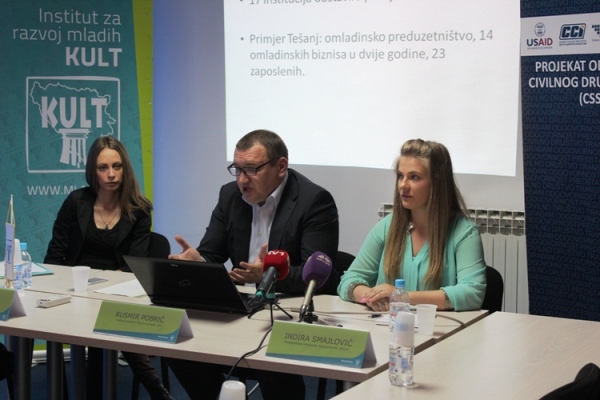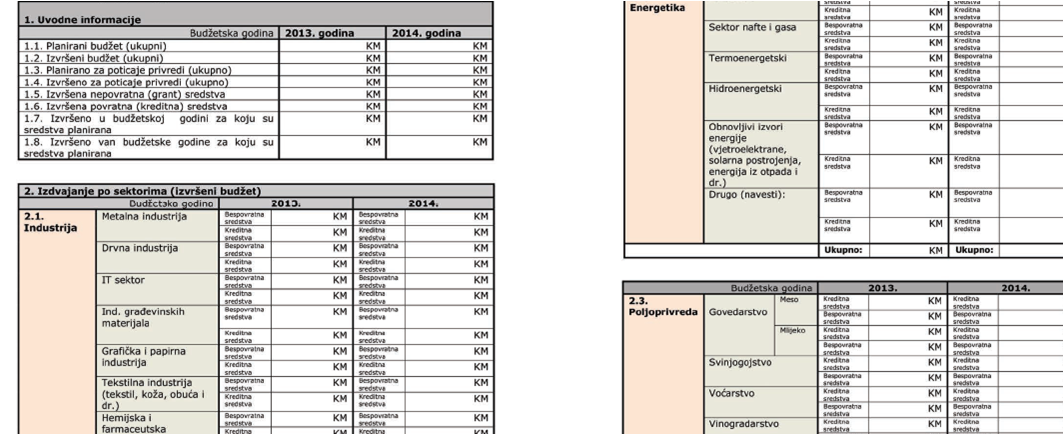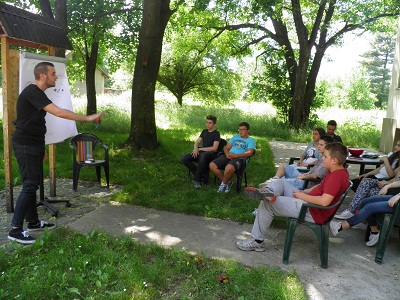Results of the research conducted by the Institute for Youth Development KULT as a part of the “BH Business Site” initiative demonstrated that in 2014, 63,369,530 BAM less was allocated in assets for 2014 in BiH economy from the budget funds in comparison to 2013.
As a part of the “BH Business Site” initiative of the Institute for Youth Development KULT, the reseach on budget incentives that the governmental institutions allocated for economic development in 2013 and 2014 in the form of irrevocable (grant) and revocable (credit) funds was completed. The research includes 133 governmental institutions and over 600 million BAM in funds allocated for economic incentives in BiH. According to the Institute, the research indicated to the negative trend in budget support for the BiH economy.
“In total for economic incentives, the institutions that delivered data, planned 390,892,989.18 BAM for 2013, or 330,040,331.93 BAM for 2014, while the implemented incentives amounted to 325,606,866.42 BAM in 2013, or 262,237,336.36 BAM in 2014. The total sum of implemented economic incentives for both years is 587,844,202.78 BAM. So, there is a decrease in economic allocations of 19.5% in 2014”, stated Rusmir Pobri?, the “BH Business Site” Project Coordinator at the Institute for Youth Development KULT.
The research indicated that agriculture has the highest percentage of participating in the total economic incentives for both years with the participation of 54%. It is followed by industry with 18%, then services, enterpreneurship and crafts development and tourism.
For the agricultural sector a total of 316,270,974.91 BAM was allocated during two years, with 54,960,920.58 BAM in credit and 261,310,054.33 BAM in irrevocable funds. Agriculture participates in total incentives with 54%. In 2013, 172,663,619.88 BAM was allocated and in 2014, 143,607,355.03 BAM – a decrease of 29,056,264.85 BAM. The most represented sectoral area is dairy farming with 131,425,003.15 BAM (42%), crop farming with 32,461,223.48 BAM (10%), and viticulture the least with 259,752.00 KM (0.1%). Lesser participation is evident in beekeeping, poultry farming and water management.
Pobri? emphasizes that it is very interesting that there were no allocations for the IT sector, that has been the most requested profession in the last couple of years. The situation is similar in tourism.
“Total allocations for tourism in 2013 and 2014 were 2,776,883.96 BAM – 1,331,230.15 BAM in 2013 and 1,445,653.81 BAM in 2014. The most represented sectoral areas are educational (34.6%) and sports tourism (27.6%), while mountain and sea tourism are not represented at all (0.0%). There is also low representation in eco, health and religious tourism (from 0.5 to 1.3%) in total incentives for tourism”, added Pobri?.
There are also examples of good practice found in 17 of 88 institutions that present bright examples. KULT representatives emphasize the example of Tešanj Municipality.
“I must emphasize the example of incentives for youth enterpreneurship in Tešanj. I believe that it is the most developed in that Municipality. Through those incentives and that programme, in two-years time, 14 new youth firms were established”, Pobri? concluded.
Finally, the Institute for Youth Developmant KULT emphasizes that the institutions, as a part of the improvement recommendations, mostly select increase of funds for economic incentives and implementing processes of planning the distribution of incentives (coordination with other institutions and governmental levels, consulting potential users, etc.).
The results of the research will be used as one of the sources for developing an analysis of states in the area of distributing budget incentives to perspective economic sectors and will serve as a platform for creating precise directions to improve the process for all institutions that financially incite and stimulate economic development.
“The “BH Business Site” initiative is conducted as a part of the Civil Society Sustainability Project (CSSP) realised by the Centres for Civil Initiatives (CCI) and Centre for Promoting the Civil Society (CPCD), supported by the US Agency for International Development (USAID) and the Government of the United Kingdom.”















Leave a comment